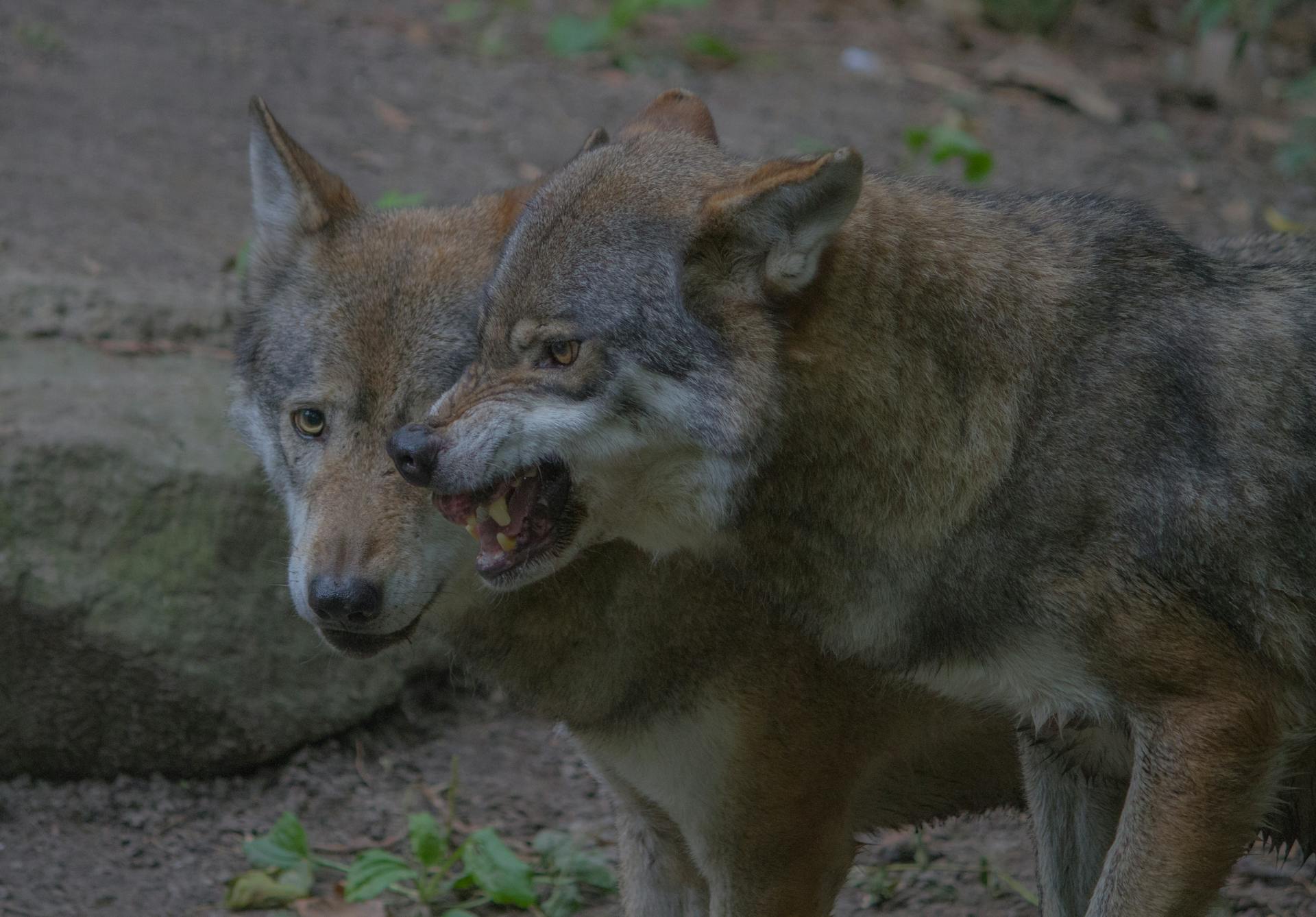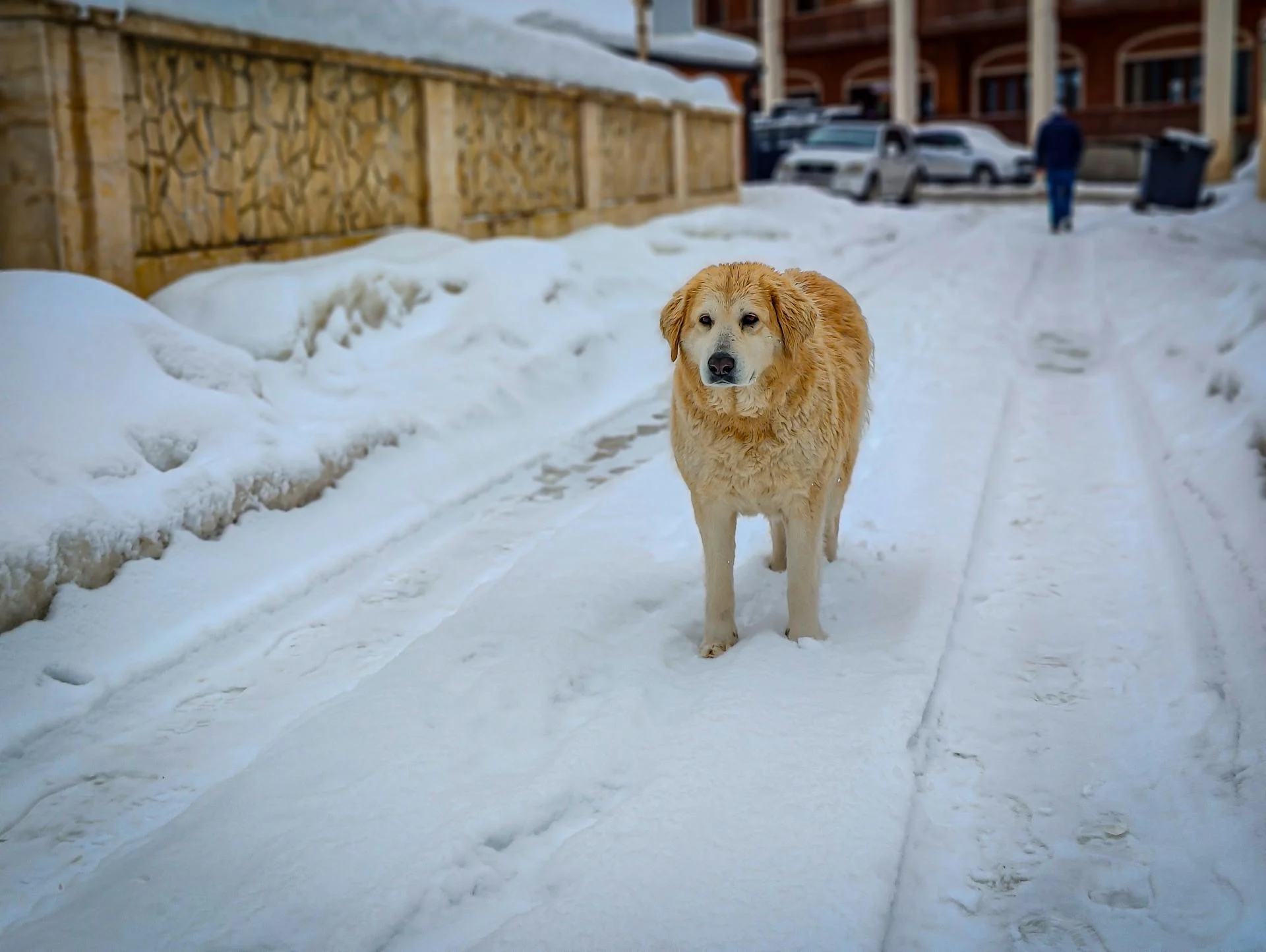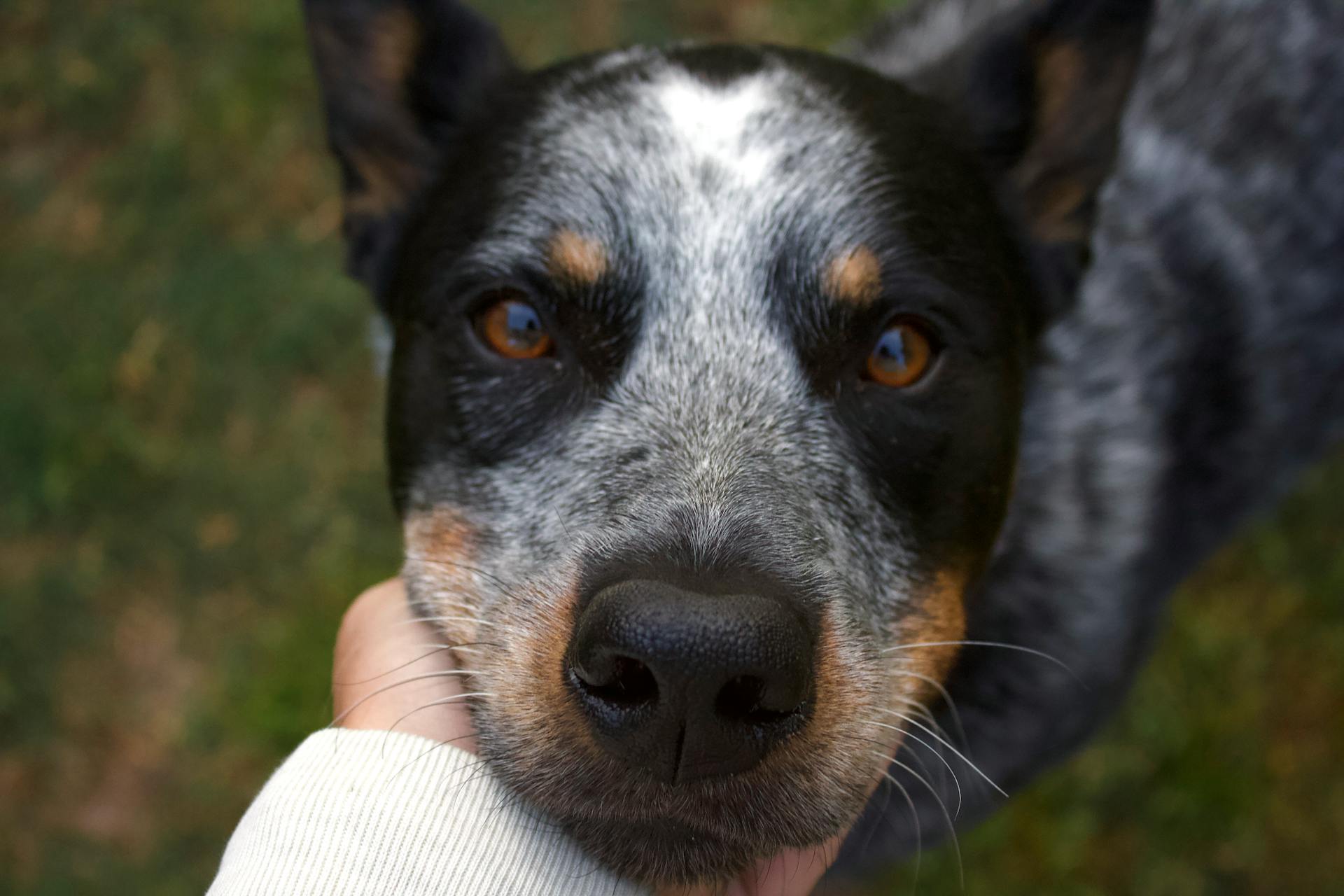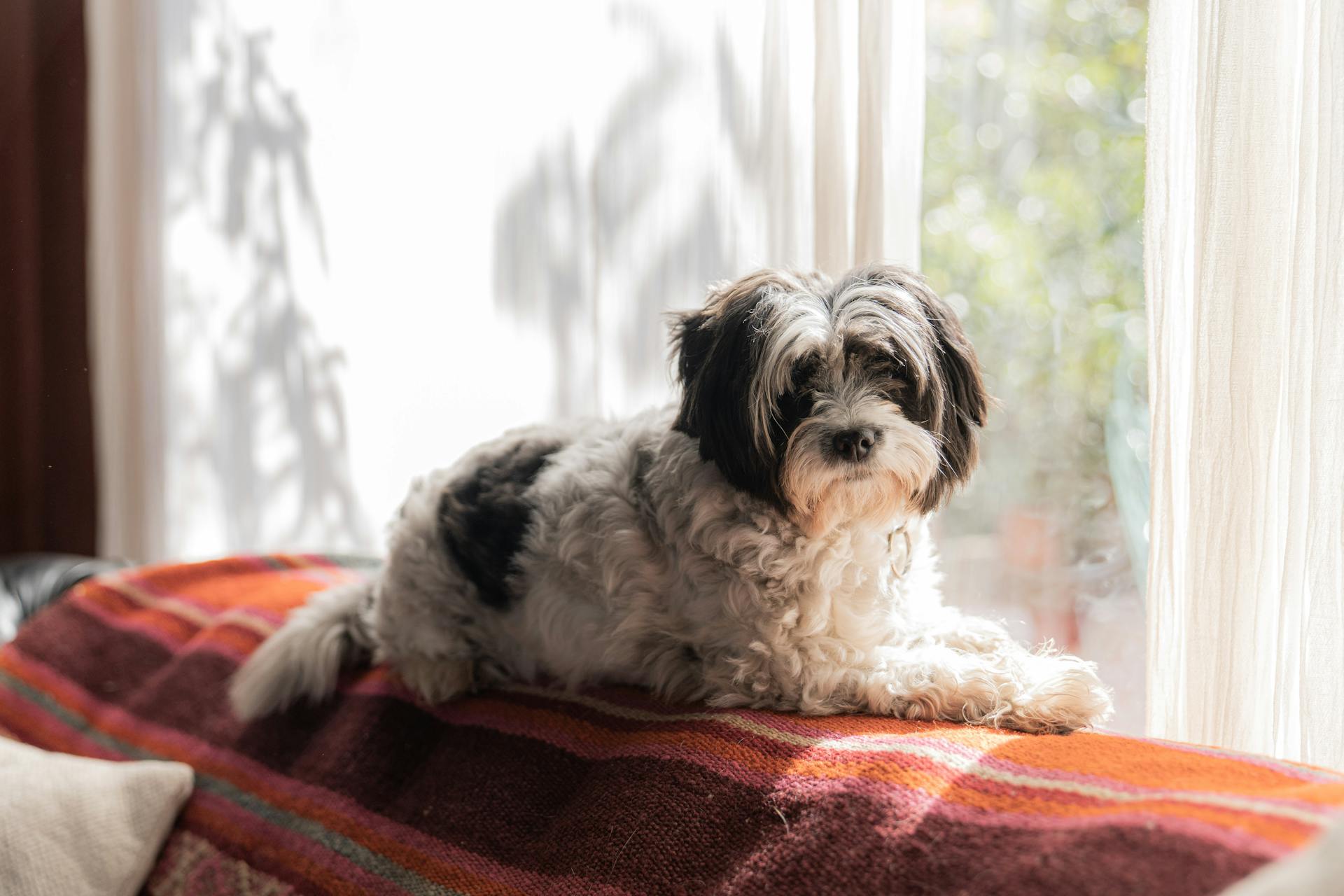
Shih Tzus are known to growl for various reasons, including fear and anxiety, which can be triggered by new environments, people, or objects.
Their small size and friendly nature often lead owners to underestimate their potential to growl, but it's essential to recognize the signs and address the underlying causes.
One common reason for Shih Tzu growling is resource guarding, where they feel the need to protect their food, toys, or other valued items.
Shih Tzus may also growl due to medical issues, such as pain or discomfort, which can be caused by dental problems or other health concerns.
Understanding Growls
Growling is a form of canine communication that has many triggers, and it's not always a bad thing. In fact, some growling is positive, like when your dog is having fun during playtime.
Many dogs grunt and grumble during play because they're enjoying themselves, and it's not a sign of aggression. You might have seen two dogs wrestling and heard some growling, but it was likely all part of the game.
Growling during play or cuddling can simply indicate happiness in your dog. It's a way for them to communicate contentment or as a greeting.
However, other growls have a different meaning. A dog might growl to threaten another dog, or it might be a response to feeling cornered. These types of growls indicate that your dog is uncomfortable.
Growling can also be a symptom of resource guarding or pain or sickness in your dog. It's a warning sign that you can use to intervene and change the situation before your dog feels the need to resort to more serious measures like biting.
Additional reading: Definition of Shih Tzu
Play Growls
Play growls are a form of canine communication that can be triggered by various situations, and some growling is actually positive.
Many dogs grunt and grumble during playtime because they're having fun, and you might even hear growling during a cuddle or patting session. This type of growl simply indicates happiness.
Some people might think growling during play means the dog is aggressive, but it's likely all part of the game. Dogs might even growl while wrestling with each other.
To tell the difference between happy growls and stress growls, look at the dog's body language. If your dog is giving you a submissive grin or play bows, then the growling is likely fine.
Understanding Different Growls
Growling can be a warning sign that something's bothering your dog. Unlike play and talk growls, stress growls indicate your dog is uncomfortable.
A dog might growl to threaten another dog, or it might be a response to feeling cornered. Growling is also a common symptom of resource guarding. An injured dog will often growl to keep others at bay.
To tell the difference between happy growls and stress growls, look at your dog's body language. If your dog is giving you a submissive grin or play bows, then any growling is likely just fine.
A stiff body and hard expression, on the other hand, indicate a serious growl. In doubt, it's always better to err on the side of caution and treat the growl as a threat.
Here are some common reasons why dogs growl:
- Fear or Defensiveness
- Protection of Property
- Pain or Sickness
- Dominance Assertion
- Predatory Instinct
The tone of the growl can also be a clue. A loud, higher-pitched growl might tell you something different from a soft, lower-pitched one.
Why Shih Tzus Growl
Shih Tzus growl for a variety of reasons, and understanding these causes can help you address the behavior. Growling can be a response to feeling cornered or threatened by another dog, and it's also a common symptom of resource guarding.
Shih Tzus may growl to protect their owners, territory, or due to fear. They may also growl due to loneliness and boredom, or as a result of separation anxiety. Some Shih Tzus growl because they're seeking attention.
Here are some common triggers for Shih Tzu growling:
- Protecting their owner
- Protecting their territory
- Fear
- Loneliness and boredom
- Separation anxiety
- Attention-seeking
Puppy Mouthing
Puppy mouthing is a common behavior in young dogs, often driven by underlying reasons. Boredom or excess energy can lead to this behavior.
Puppies as young as eight weeks old may exhibit mouthing due to boredom or excess energy. If left unchecked, this behavior can persist and become a major problem by the time the puppy reaches eight months old.
Some common reasons for puppy mouthing include hunting or prey instinct, comfort-seeking, and hiding possessions. These reasons can be complex and multi-faceted.
Here are some possible reasons for puppy mouthing:
- Boredom or Excess Energy
- Anxiety or Fear
- Hunting/ Prey Instinct
- Comfort-Seeking (such as nesting or cooling off)
- Hiding Possessions (like bones or toys)
- To Escape or Gain Access
- Curiosity (Puppies)
Recognizing these underlying reasons is crucial to addressing puppy mouthing effectively.
Barking
Shih Tzus bark for a variety of reasons, including to protect their owners, alert them to potential threats, and express excitement or playfulness. Some common triggers for barking in Shih Tzus include their territorial nature, fear, loneliness, boredom, and separation anxiety.
Shih Tzus are social creatures and don't fare well alone, so it's no surprise that they bark when left for extended periods. In fact, studies show that Shih Tzus are more prone to barking due to loneliness, boredom, and separation anxiety than other breeds.
Recommended read: Shih Tzu Dog Sounds
If you're a Shih Tzu owner, you know that barking can be a problem, especially if it's excessive or poorly timed. But did you know that barking is actually a language that dogs use to communicate? It's true, and understanding why your Shih Tzu is barking is the first step to addressing the issue.
Here are some common types of barking in Shih Tzus, along with some tips on how to address them:
By understanding why your Shih Tzu is barking, you can take steps to address the issue and reduce excessive barking. Remember, every dog is different, so it may take some trial and error to find the right solution for your furry friend.
Handling Growling
Handling growling in Shih Tzus requires a thoughtful approach. Growling is often a symptom of stress in dogs, indicating that something is bothering your Shih Tzu.
If your Shih Tzu growls, it's essential to determine what's causing the stress and change the situation to suit their needs. This might mean leaving a stressful environment or removing a trigger that's causing discomfort.
Punishing your Shih Tzu for growling can actually make the problem worse by exacerbating the underlying issue. It's better to address the root cause of the growling rather than just suppressing the behavior.
To handle growling effectively, you need to identify and eliminate the situations that trigger it. For example, if other dogs stress your Shih Tzu, it's best to avoid dog parks or areas where they're likely to encounter other dogs.
Desensitization and counterconditioning techniques can help your Shih Tzu become comfortable with the things that once caused them stress. However, these methods require patience and the assistance of a professional dog trainer or animal behaviorist.
Common Issues
Shih Tzus can be prone to growling due to various reasons. Fear or defensiveness is a common trigger for growling in Shih Tzus.
Some Shih Tzus may growl when they feel threatened or scared, which can be a result of their territorial nature. They may also growl due to pain or sickness, which can cause them to become irritable and defensive.
Shih Tzus may also growl to assert dominance or due to predatory instinct, which can be a natural behavior for some breeds.
What Stress Means
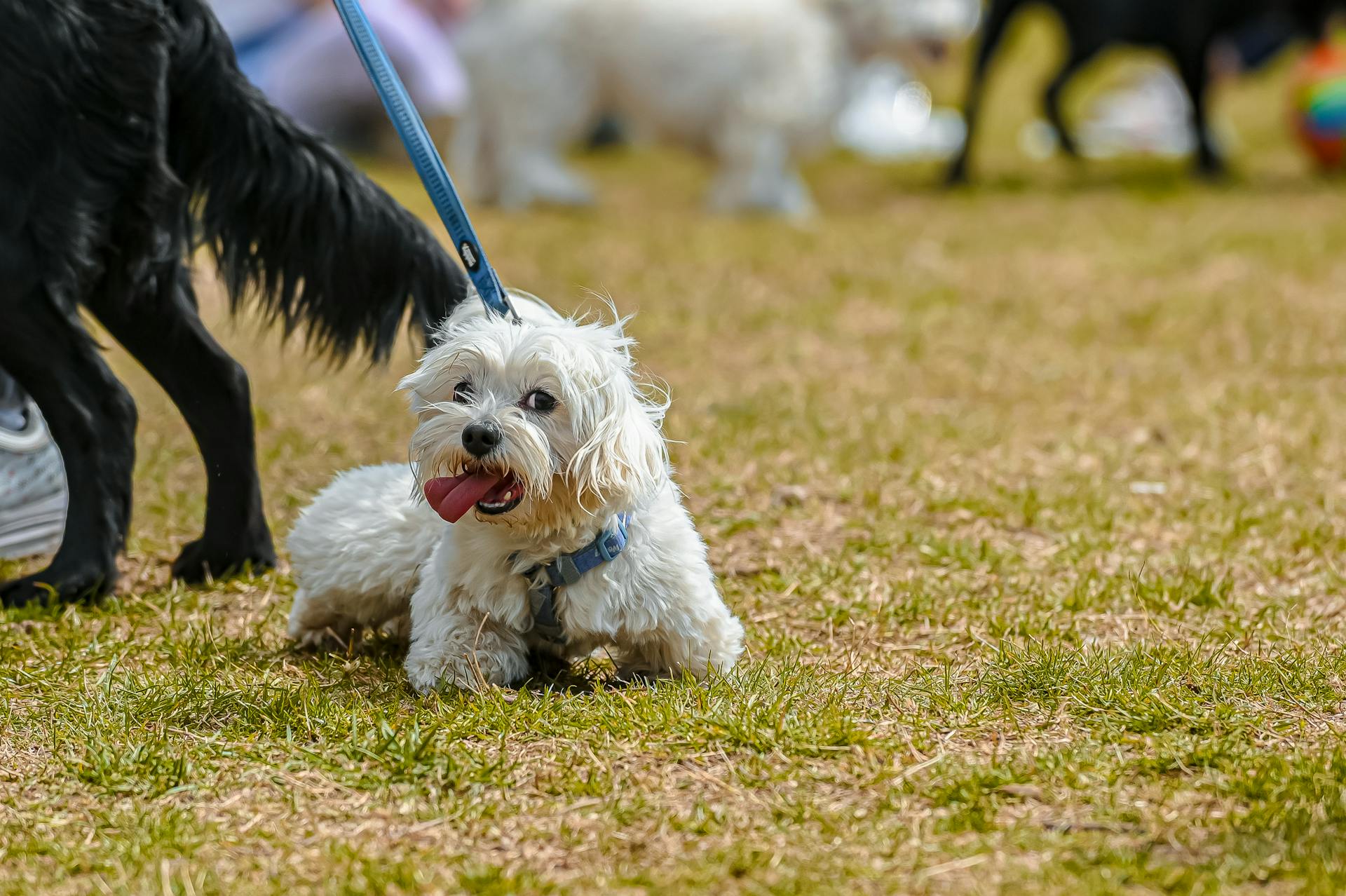
Stress is a state of heightened anxiety that can affect your dog's behavior and body language.
Stress growls are a warning signal that tell others to back off before the dog is forced to take further action.
Most dogs don't want to attack or bite, they use growling to prevent the situation from escalating.
Appreciate growls for the insight they give into your dog's state of mind and for the time they give you to intervene, help your dog, and prevent injury.
Barking due to Loneliness, Boredom and Separation Anxiety
Shih Tzu dogs are social creatures and don't fare well alone. They can develop separation anxiety, loneliness, and boredom, which can lead to excessive barking. Most people work and must leave their dogs for extended periods, making it essential to find ways to alleviate these issues.
To relieve loneliness, boredom, and separation anxiety, consider hiring a dog walker to visit, feed, walk, and play with your dog. Alternatively, take your dog to daycare a couple of times a week. This will give them the social interaction and exercise they need to stay happy and calm.
Interactive toys, treat-dispensing toys, and a snuggle puppy can also help keep your Shih Tzu entertained and engaged while you're away. Leave a TV show or video on for them, but be cautious as some dogs can get rowdy when watching certain types of shows.
A calming music can help soothe your Shih Tzu before you leave, and setting up a quiet, comfortable space for them to relax in can also be beneficial. This space should include a bed, chew toys, food, water, and some interactive objects to keep them entertained.
Here are some ideas to help alleviate loneliness, boredom, and separation anxiety:
- Hire a dog walker
- Take your dog to daycare
- Leave interactive toys and treat-dispensing toys
- Leave a TV show or video on (with caution)
- Play calming music
- Set up a quiet, comfortable space with a bed, chew toys, food, water, and interactive objects
Frequently Asked Questions
How to control Shih Tzu anger?
Redirect your Shih Tzu's biting behavior to a toy, and address the issue immediately if it causes pain. This simple yet effective approach can help manage your Shih Tzu's anger and prevent future biting incidents.
Why does my dog growl when I pick him up?
Your dog may growl when picked up due to anxiety or fear, possibly triggered by a past traumatic experience, such as a previous fall or loss of grip. Understanding the root cause is key to addressing this behavior and helping your dog feel more comfortable.
Sources
- https://www.akc.org/expert-advice/training/why-dogs-growl-and-how-to-handle-it/
- https://petharmonytraining.com/what-should-i-do-if-my-pet-growls-when-i-try-to-move-him/
- https://www.ohmyshihtzu.com/demanding-shih-tzu-behavior/
- https://www.miracleshihtzu.com/Shih-Tzu-barking-problems.html
- https://www.miracleshihtzu.com/dog-behaviors.html
Featured Images: pexels.com
